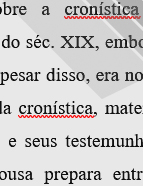

................................
During this interval, several "unknown monuments" were "unearthed", to recall the words of Alexandre Herculano, "from the dust of the libraries and archives (...), which served to completely change many historical perspectives, correct others, and definitively confirm others. (Portugaliae..., 1856, vol. 1, fasc. 1, p. v). Many of them were collected and published in the form of Memórias [Memoirs], sometimes more general, other times of a more specific nature. This trend was part of a wheel that had been turning for some time, but which turned in a similar direction, despite some structural differences, and became embodied in publications such as Gallia christiana (1715-1725) and España Sagrada published by Enrique Flórez from 1747 and continued until the 19th century. As with most of these works, those produced in Portugal were mostly limited to editing the text without any critical apparatus or historical contextualisation. At the same time, and in similar circumstances, the sixteenth-and seventeenth-century chronicles, such as those authored by Duarte Nunes de Leão, were republished, thus proving the interest of historians and publishers in the themes of medieval and post-medieval chronicles.
Also, the Collecção de livros ineditos de historia portugueza [Collection of unpublished books on Portuguese history], a work sponsored by the Academia das Ciências de Lisboa [Lisbon Academy of Sciences], although complying with the Enlightenment principle of rationality, dispensed with any historiographical preamble or collation of the text, limiting itself to underlining the "irremediable" gaps. The content of the five volumes published between 1790 and 1824, which featured some of the chronicles of Rui de Pina, Gomes Eanes de Zurara, Fernão Lopes and the Chronicas dos Senhores Reis de Portugal [Chronicles of the Kings of Portugal] by Cristóvão Rodrigues Acenheiro (16th century), was therefore copied by abade [abbot] José Correia da Serra, an illuminist and one of the founders of the Academia (1779), and Francisco Trigoso (member of the Academia and later Minister and Counsellor of State) as it appeared in the supposedly original manuscripts and in the apographs, and the slight difference in wording was regarded as the "almost inevitable carelessness of the various copyists" (Collecção de livros inéditos, 1816, vol. 4, p. XXXIV). In his introductory words to the collection, abade Correia da Serra stated that the edition of this "unique account of the certainty of our history" aimed to disclose the "unknown facts" which, when duly questioned and criticised would reveal the past through its testimonies to enable a better "understanding of what Portugal has [had] been" (Collecção de livros inéditos..., 1790, vol. 1, pp. VIII-IX). The collection, highly criticised by 19th-century positivists for the changes it brought to the spelling and interpretation of the texts, seemed to summarise an ideological approach to recovering the past rather than a methodological stance.
